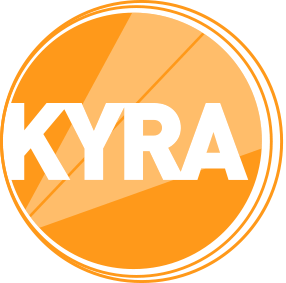Improvement programmes such as LEAP, LAMP, LENS and Mobilise are featuring in some capacity in most schools across the county. They are met with varying levels of enthusiasm and sceptics will be concerned about their sustainable impact. Having been involved in the development and the delivery of these projects, I fully understand the potential barriers to their effective implementation. They must never be an overlaid structure or a ‘bolt on’ – the aim is to change pedagogy and the way teachers function in order to improve standards of teaching and learning. Integral to this is the existing quality of teaching. Highly skilled teachers can assimilate new ways of working effectively into their classrooms by choosing high value changes and rejecting elements that will not contribute to their relentless pursuit of learning.
Of course, we all know this as ‘quality first teaching’. In my role as NQT manager, CPD leader and moderation manager QFT underpins everything; I aim to ensure that every teacher we work with takes at least one step towards securing the best quality teaching practice in their classroom. QFT is the glue that binds all educational policy and plans together. Without QFT, no amount of investment into improving schools will be embedded or sustained.
I once told someone who works outside education that my role in school was to ‘lead teaching and learning’. This caused some confusion – aren’t all teachers experts and leaders in teaching and learning? This is the challenge: we need all teachers to be expert leaders of learning and it is not as easy to achieve as we would hope. One of the biggest barriers to QFT is the lack of a definitive set of criteria for excellent teaching. There is no clear recipe or ‘tick list’ of how teachers teach best. I wonder what our Kyra Head Teachers would list as the rudiments for QFT in their schools and how varied they would be in terms of priorities. The Ofsted framework outlines those familiar areas such as subject knowledge, effective organisation of lessons, and behaviour management. These are based on strong evidence that this is what makes effective teaching, and naturally teachers and leaders use them as guidelines, but there is more. ‘What makes great teaching’ (Oct 2014) lists the 6 components of great teaching as:
- (Pedagogical) content knowledge
- Quality of instruction
- Classroom climate
- Classroom management
- Teacher beliefs
- Professional behaviours
This is a helpful list of 6 key components that link to the Ofsted framework. However, they are too broad, and whilst reading the research paper will unpack each in some detail, it still leaves a deal of uncertainty.
American educational psychologist Lee S Shulman, who recognised that teacher subject knowledge was a separate entity pedagogy, and championed the concept ‘pedagogical content knowledge’, sums up the perplexity of QFT:
“After some 30 years of [analysing teaching], I have concluded that classroom teaching is perhaps the most complex, most challenging and most demanding, subtle, nuanced, and frightening activity that our species has ever invented.”
The truth is that the lack of a tangible and definitive set of criteria for QFT is both the beauty and the beast of the teaching profession. We need the basics-the non-negotiable elements, to be clear, but what actually transforms them into quality is the individuality, nuances and subtleties that the teacher brings to the classroom (of course, this might transform them into very poor quality as well!). As leaders of learning, how do we train and teach teachers to be excellent in their practice if excellent practice is so intangible?
We have devised the Kyra ‘Perfecting Practice’ programme to enable teachers to explore the research and expectations behind excellent teaching. During this programme we investigate the fundamentals of QFT and facilitate teachers to identify their individual strengths and how to build on them. Teacher feedback is that this course supports very practical improvement around data and assessment and gives ample opportunity for critical reflection on individual style. If you are a teacher seeking to find your own pathway for improvement, we welcome you to join us on the 5th December for the first session. You can book via this link: https://event.bookitbee.com/18217/start-booking#booknow
“Addressed my areas of improvement”
“This has allowed me to reflect on my own practice and consider next steps to improve my teaching”
“Engaging, lots of opportunities to share and discuss ideas”
“Provided me with lots of approaches to improve teaching and learning”
“Lot of resources to help support practice”
“Pace and marking/feedback and data analysis will help improve my practice”
“Very informative, range of resources, range of activities, time to ask questions, time for discussion”
2017 Feedback


